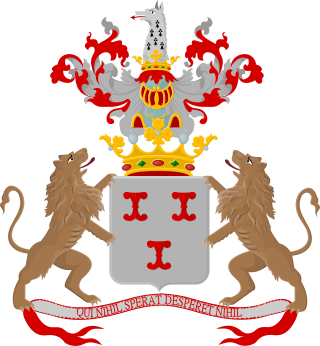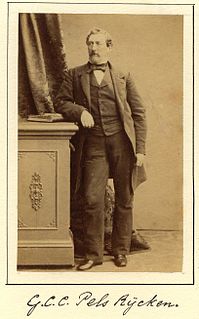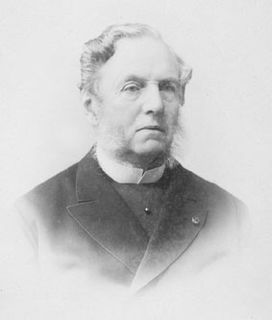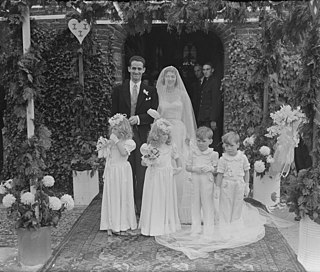
Pieter Hendrik van Zuylen van Nijevelt (1 July 1782 in Kampen – 25 January 1825 in Utrecht) was a Dutch count and baron who served as a general in the French and Dutch armies during the Napoleonic era and later. He was present at the Battle of Waterloo in 1815 as chief of staff of the 2nd Dutch Division.
Dutch people or the Dutch are a Germanic ethnic group native to the Netherlands. They share a common culture and speak the Dutch language. Dutch people and their descendants are found in migrant communities worldwide, notably in Aruba, Suriname, Guyana, Curaçao, Argentina, Brazil, Canada, Australia, South Africa, New Zealand, and the United States. The Low Countries were situated around the border of France and the Holy Roman Empire, forming a part of their respective peripheries, and the various territories of which they consisted had become virtually autonomous by the 13th century. Under the Habsburgs, the Netherlands were organised into a single administrative unit, and in the 16th and 17th centuries the Northern Netherlands gained independence from Spain as the Dutch Republic. The high degree of urbanization characteristic of Dutch society was attained at a relatively early date. During the Republic the first series of large-scale Dutch migrations outside of Europe took place.

The Napoleonic era is a period in the history of France and Europe. It is generally classified as including the fourth and final stage of the French Revolution, the first being the National Assembly, the second being the Legislative Assembly, and the third being the Directory. The Napoleonic era begins roughly with Napoleon Bonaparte's coup d'état, overthrowing the Directory, establishing the French Consulate, and ends during the Hundred Days and his defeat at the Battle of Waterloo. The Congress of Vienna soon set out to restore Europe to pre-French Revolution days. Napoleon brought political stability to a land torn by revolution and war. He made peace with the Roman Catholic Church and reversed the most radical religious policies of the Convention. In 1804 Napoleon promulgated the Civil Code, a revised body of civil law, which also helped stabilize French society. The Civil Code affirmed the political and legal equality of all adult men and established a merit-based society in which individuals advanced in education and employment because of talent rather than birth or social standing. The Civil Code confirmed many of the moderate revolutionary policies of the National Assembly but retracted measures passed by the more radical Convention. The code restored patriarchal authority in the family, for example, by making women and children subservient to male heads of households.
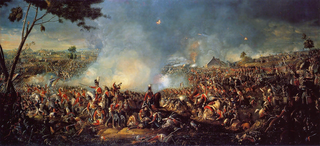
The Battle of Waterloo was fought on Sunday, 18 June 1815 near Waterloo in Belgium, part of the United Kingdom of the Netherlands at the time. A French army under the command of Napoleon Bonaparte was defeated by two of the armies of the Seventh Coalition: a British-led allied army under the command of the Duke of Wellington, and a Prussian army under the command of Field Marshal Blücher. The battle marked the end of the Napoleonic Wars.
Contents
Pieter Hendrik's son Julius van Zuylen van Nijevelt (1819–1894), born in Luxembourg, inherited his titles of count and baron. He served as prime minister of the Netherlands from 1866 to 1868.

Julius Philip Jacob Adriaan, Count van Zuylen van Nijevelt was a conservative Dutch politician.

